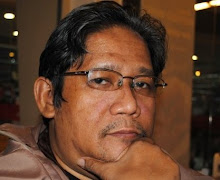
The battle for the hearts and minds of Catholic Filipino couples over the free choice of using state-provided artificial birth control tools like condoms is heating up as the week begins.
Now the Catholic Church says its civil disobedience push will include mobilizing it’s laity groups like the Couples for Christ and even Parish-based organizations while hinting at a formal legal challenge to the constitutionality of the government’s espousal of the U.S.-supported “responsible parenthood” program.
Here’s what’s now on the web site of the Catholic Bishops Conference of the Philippines (emphasis mine):
Church leaders say ‘civil disobedience a possibility’
MANILA, Oct. 3, 2010—Catholic leaders said civil disobedience is an option that can be considered by the Church should President Benigno Aquino make good of his promise to hand out artificial birth control devices.
Church leaders, in separate interviews said bishops and priests have the moral authority to teach and lead the faithful based on Church teachings.
Aquino has earlier said during a small town meeting in the United States that he may consider contraceptive methods to curb population even though it runs counter to the natural methods being promoted by the Catholic Church.
Artificial contraception is a moral issue and Church leaders said civil disobedience is an important option that maybe considered to bring the Church’s message to the current leaders.
“The Catholic Church in the Philippines can do that if it decides to do that because for one thing, civil disobedience is a moral option, one of the moral options,” said CBCP Secretary General Msgr. Juanito Figura in an interview with CBCP News.
He explained civil allegiance is the respect given by the people to the state and the laws of the state “and according to Church principles, we should do that but according to the same Church principles, if a law or a state policy is against Christian teachings, persons, Christians, Catholics are not bound by conscience to obey that.”
He said this is the very foundation of civil disobedience.
“When a law or state policy or state program is not in consonance with what the faith teaches so from that perspective, if the local church in the Philippines or the hierarchy in the Philippines decide to call for disobedience because of this possibility of enacting the controversial Reproductive Health bill and the distribution of artificial contraceptives the bishops would have a moral reason to do that,” he further added.
Figura said they have not received any call or letter from the Office of the President for a dialogue on the controversial issue although it was published in the papers that an audience with the Catholic bishops is being prepared.
“We have not received any communication so far,” the secretary general said, adding that it may be a good idea for Aquino to seek a dialogue with the Catholic bishops.
The previous administration of President Gloria Macapagal-Arroyo had a liaison officer who was in constant touch with the CBCP secretariat.
But Figura said he is not sure if the present government “would appoint somebody to the position.”
CBCP Media Director Msgr. Pedro Quitorio said only once it happened in the history of CBCP that the Church called for civil disobedience.
“Since the CBCP was established in 1945 until today there was just a single event that called for civil disobedience and this was after the February 7, 1986 snap elections,” Quitorio said.
But the actual civil disobedience did not take place because it was “overtaken” by events.
He emphasized that the CBCP has not called for any mass action so far.
Quitorio said he doesn’t know of any forthcoming meeting with President Aquino and the archbishops and bishops to discuss the controversial issue.
On his part, San Fernando de Pampanga Auxiliary Bishop Pablo Virgilio David, expressed alarm on the statement President Aquino’s made while in the United States.
“Alam kaya ni Presidente Noy na marami sa artificial methods na iyan ay abortifacients na ang ibig sabihin ay they were designed not only to prevent conception but terminate a conceived child because once you already have a fertilized embryo you already have a human being,” the prelate explained.
The prelate said the 1987 Constitution guarantees the protection of the unborn as it is the duty of the state from the moment of conception.
“It is therefore unconstitutional to promote methods that terminate conception,” he explained. He said the country’s leadership seems bent on following the templates from highly developed countries which already backfired and failed.
“These countries have already taken a new approach to population management because they have already experienced a demographic winter,” the 51 year-old prelate added.
He said these developed countries should not force developing countries to suffer from their earlier experience.
“These countries are threatened by issues concerning geopolitics or an issue of power that their population may be overtaken by developing countries,” he further explained.
The prelate added the developed countries may become totally dependent on migrant workers.
Lingayen-Dagupan Auxiliary Bishop Renato Mayugba said the bishops may not anchor their statements on faith but on the country’s existing Constitution which calls for the protection of the unborn child from the time of conception.
“If the government will pursue programs that run counter to the provisions of the Constitution, it would simply mean violating the country’s constitution,” the 54-year old prelate said.
Meanwhile, Lipa Archbishop Ramon V. Arguelles called on the faithful of his ecclesial province to prepare to mobilize the laity for mass actions against the movement of the Aquino government to push for the passage of the controversial Reproductive Health bill and all population control measures.
In a text message to his flock from Italy, the archbishop said they are in solidarity with the lay faithful of Cebu in its opposition to the planned introduction of artificial methods to the Filipino families. (Melo M. Acuna)
http://www.cbcpnews.com/?q=node/13320















No comments:
Post a Comment